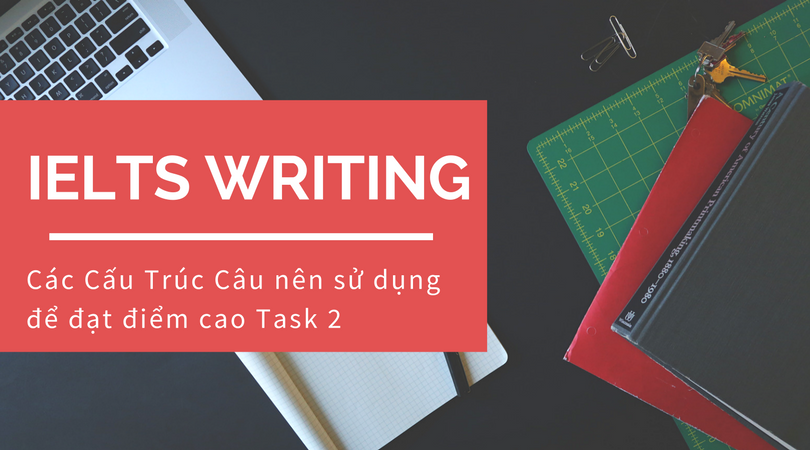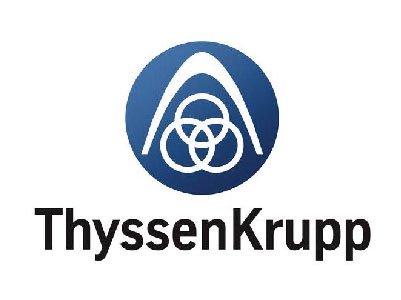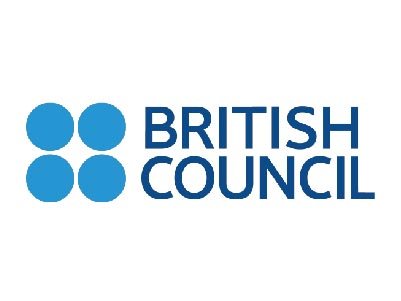[IELTS Writing] Các cấu trúc câu nên sử dụng để đạt điểm cao ở Task 2

Ngữ pháp và Từ vựng là hai điểm cần lưu ý nhất trong phần thi IELTS Writing Task 2. Trong đó, ngữ pháp chủ yếu là về sự đa dạng và độ chính xác của cấu trúc câu mà bạn sử dụng. Bài viết dưới đây tổng hợp những mẫu cấu trúc câu thường sử dụng và dễ ăn điểm nhất khi làm IELTS writing, hy vọng sẽ giúp ích trong quá trình luyện thi của các bạn.
Có ba loại cấu trúc câu chính là: Câu đơn (simple sentences); Câu ghép (compound sentences); Câu phức (complex sentences).
-
Câu đơn
Câu đơn là câu có một vế độc lập đứng một mình.
Ví dụ: Computers are useful tools.
-
Câu ghép
Câu ghép là câu có nhiều hơn một vế độc lập. Trong loại câu này, các vế độc lập thường được nối với nhau bởi các từ nối (conjunctions). Các conjunctions phổ biến là: and, nor, or, but, yet, so, for. Ngoài ra, có thể nối bằng các trạng từ (adverbs) như: however, nevertheless, otherwise, instead, also, moreover, furthermore, besides, consequently, therefore, thus, likewise.
Adverbs thường được dùng để nối các mệnh đề độc lập thành câu ghép. Khi dùng adverbs, bạn lưu ý là thường có dấu chấm phẩy trước adverb hoặc dấu phẩy đằng sau adverbs.
Dưới đây là một ví dụ về việc nối câu:
Ví dụ 1:
Câu đơn 1: Computers have improved the way people communicate at the workplace.
Câu đơn 2: An increasing number of companies are now using the email as a form of communication.
Câu ghép: Computers have improved the way people communicate at the workplace, so an increasing number of companies are now using the email as a form of communication.
Ví dụ 2:
Câu đơn 1: The Internet is being used worldwide.
Câu đơn 2: Many people do not have access to the Internet.
Câu ghép: The Internet is being used worldwide; however, many people do not have access to it.
-
Câu phức
Một câu phức là câu có hơn một mệnh đề. Khác với câu ghép, câu phức được tạo ra bởi việc nối một mệnh đề độc lập (independent clause) với một mệnh đề phụ thuộc (dependent clause). Mệnh đề phụ thuộc là loại mệnh đề không thể đứng một mình mà có nghĩa, mà phải đi kèm với một mệnh đề khác. Ví dụ:
Computers are useful tools that offer several benefits to people.
Mệnh đề độc lập(Computers are useful tools) có thể đứng một mình. Tuy nhiên, mệnh đề phụ thuộc (that offer several benefits to people) không thể tự tạo thành một câu.
Câu phức thường dùng các từ để nối các mệnh đề lại với nhau, ví dụ:
Conjunctions of contrast: although, though, even though, while, whereas
Conjunctions of cause and effect: as, since, because, in order that
Conjunctions of condition: if, unless, only if, even if, in case (that), whether or not
Conjunctions of time: until, after, before, while, since, when
Relative pronouns: which, that, who, whose, whom.
Chúng ta cùng xem xét một vài ví dụ về việc ghép câu đơn thành câu phức, sử dụng conjunctions và relative pronouns nhé!
Ví dụ 1:
Câu đơn 1: Computers can be used in harmful ways.
Câu đơn 2: Computers offer several benefits to people.
Câu phức: Although computers can be used in harmful ways, they also offer several benefits to people.
Ví dụ 2:
Câu đơn 1: Computers are useful tools.
Câu đơn 2: Computers offer several benefits to people.
Câu phức: Computers are useful tools that offer several benefits to people.
Because computers are useful tools, they offer several benefits to people.
LUYỆN TẬP
Các bạn hãy thử viết lại các câu đơn sau thành câu ghép hoặc câu phức. (Khuyến khích các bạn viết lại theo nhiều cách khác nhau).
1/Japan is a world leader in modern technology.
Japan still maintains its traditional values, such as respect for elders.
2/Computers have a wide variety of software available.
The software can complete certain tasks automatically.
3/There are some clear disadvantages of online study.
The benefits provide students with a valuable alternative to classroom learning.
4/Watching television exposes people to opinions from outside their own cultural group.
This leads to a greater understanding of the views of others.
5/Many animals live short lives in terrible conditions.
Then they are killed and sold as meat.
6/Pressure at work and home is increasing.
Many people suffer from high levels of stress.
{Tổng hợp}




























